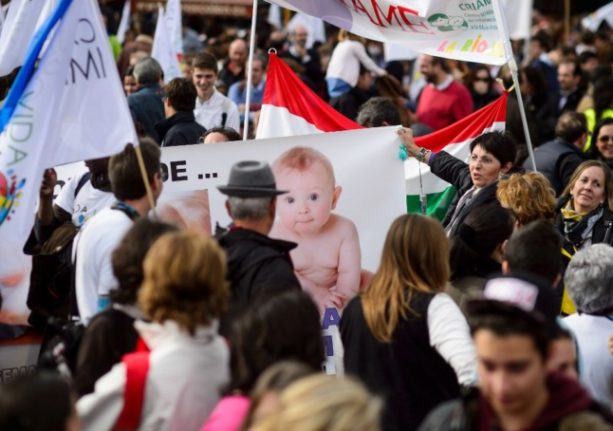Where and when was Bonino born?
Bonino was born in the town of Bra, Piemonte, in 1948. She later went on to study for a degree in Modern Languages and Literature at Milan’s Bocconi University and after graduating, taught foreign languages for a few years.
Politics was not on her agenda until she experienced a personal trauma in 1975.
And what was that?
She fell pregnant at the age of 27, by a man who told her he was sterile, Bonino is reported to have said during interviews. She then had an illegal abortion after a doctor refused the procedure unless she paid him one million lire (about €500).
"I went into politics because I had an illegal abortion," she told the European database for women in decision-making, db-decision.de.
She added: “I thought it was an unbearable hypocrisy. I was 27 years old and thought there had to be something I could do because it seemed crazy that, in addition to the psychological tragedy each woman has to face, came also all the rest.”
And so she volunteered for the Information Centre on Sterilisation and Abortion, which was set up in the early 1970s by the late politician, Adele Faccion.
Bonino was not afraid to tackle the issue, especially in the staunchly Catholic Italy of the 1970s.
“We would adopt civil disobedience and luckily we were arrested!” she said.
But her perseverance paid off, with women’s movements mobilising to help the cause, something which eventually led to Italy legalising abortion in 1978, two years after Bonino was elected to the Italian Chamber of Deputies.
So how did she follow up that success?
Her campaigning for abortion, and later divorce, brought her into contact with the Radical Party, which she became a leading member of.
The nuclear issue was another passion, and in 1986 she was instrumental in pushing for a referendum against nuclear energy that led to Italy rejecting a civil nuclear energy programme.
She also became a European Commissioner and a member of the European Parliament. An article in The Economist in the late 1990s said Bonino “may well be the commission’s most naturally gifted politician, grasping instinctively where territorial gains can be made”. She also became well known for “courting publicity and controversy as a means of advancing her causes”.
Has her controversial activism ever landed her in hot water?
Well in 1997, when she was an EU Commissioner, Bonino was arrested by the Taliban in Afghanistan along with 18 others for filming women during a tour of a hospital in Kabul. They were released after three hours, with Bonino saying she was frightened by the experience.
"All of them had Kalashnikovs [automatic rifles], and were fully armed," she is reported to have said at the time."They were beating our people on their backs with their Kalashnikovs.”
Still, the experience only propelled her to do more for repressed women in the Middle East and human rights.
“I am now concerned with women's issues in a different way: women from Afghanistan, from Cambodia,” she said.
Her work with human rights has earned her two awards along the way: the North-South Prize in 1999 and the Open Society Prize in 2004.
Just how popular is Bonino in Italy?
With 30,982 likes on her Facebook page and a campaign underway for her to be Italy’s next president, she’s doing pretty well in the popularity stakes.
Fellow politicians have also backed her for next president. Mara Carfagna, a member of the People of Freedom party and former showgirl and model, said in April this year that it would be “desirable” to have a woman at Quirinale Palace.
Finally. what are Bonino’s best quotes?
Bonino has been pretty provocative over the years, with three of the best including:
“Women are clear-headed, they are more creative and for this reason, sometimes, also more fragile.”
“I am positive that flexibility is a feminine characteristic.”
“Men don't have as many difficulties and are more supported to combine the different aspects of their life.”



 Please whitelist us to continue reading.
Please whitelist us to continue reading.
Member comments